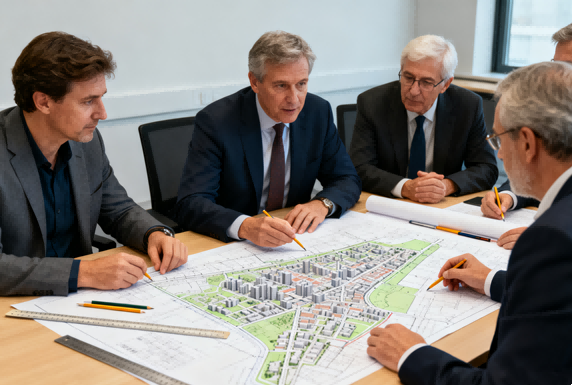To advance the 2030 Agenda for Sustainable Development, iAONR establishes the International Award for Best Practices (IABP) in Natural Resources and Planning. It recognizes exemplary projects in resource recycling, climate resilience, green transformation, and more, driving society toward a resilient and sustainable future.
Climate Resilience
This category focuses on the professional excellence of completed projects in addressing climate change, carbon reduction collaboration, urban resilience and safety, and other areas, demonstrating environmental sensitivity and a firm commitment to addressing environmental, urban, and social challenges.
Ecological Restoration
This category focuses on completed projects in ecological integrity restoration (vegetation restoration, soil and water conservation, animal habitat connectivity), biodiversity, livelihood relevance (ecological product transformation), and among others. These projects highlight the effectiveness of systematic restoration and long-term management.
Green and Low-Carbon
This category focuses on full lifecycle carbon accounting, technological innovation, and cost-effectiveness. These projects emphasize carbon footprint transparency and traceability, as well as strong local adaptability of technology.
Age Friendly
This category focuses on inclusive design and mechanisms that break down barriers, enabling every member of the city and community (regardless of age, illness, disability, or pregnancy) to participate and use equally, conveniently, and with dignity. The project implementation fully reflects fairness and friendliness.
Heritage Revival
This category focuses on heritage protection and inheritance, revitalization and symbiosis, cultural and economic innovation (such as the modernization of traditional crafts), and community identity. These projects highlight the coexistence of old and new, while achieving stronger economic sustainability.
Urban Renewal
This category focuses on the revitalization of urban life and sustainable regeneration, with mixed functions of residential, production, and service projects, promoting urban structural optimization, functional improvement, cultural continuity, and quality enhancement, and creating livable, resilient, and smart cities.
Rural Revitalization
This category focuses on improving the living environment through planning and construction, and creating beautiful rural areas with local characteristics; Relying on local resources and advantageous industries, developing characteristic agriculture, rural tourism and other industries.
Business Environment
This category focuses on demonstration projects such as commercial upgrading, consumer scene creation, and business revitalization in commercial spaces such as commercial districts, commercial parks, industrial parks, cultural districts, and consumer centers.
Smart Innovation
This category focuses on the use of innovative digital technologies and intelligent means such as artificial intelligence, big data, and AI to enhance public services and highlight the priority of human-centered care.

Welcome to IABP
The IABP is established by iAONR.The Office of the IABP Organization is located at the YUANYE AWARDS Urban Design Center.
Qualifications for Application
Projects completed within the past five years worldwide are eligible for registration and participation.
The submitter may be any institution or individual.The submitted materials shall be written in English, but the original materials as evidence may be written in any other language.
Award Management
The IABP selection is held once a year. To apply for the IABP, please register online.
Expert review shall be organized in October each year. Projects with complete application materials shall be included in the review and evaluation process immediately.
Selection Process
The judging panel may conduct online speeches and defenses as necessary to determine the final winners of each award.
Registration
Preliminary review
Final review
Announcement
